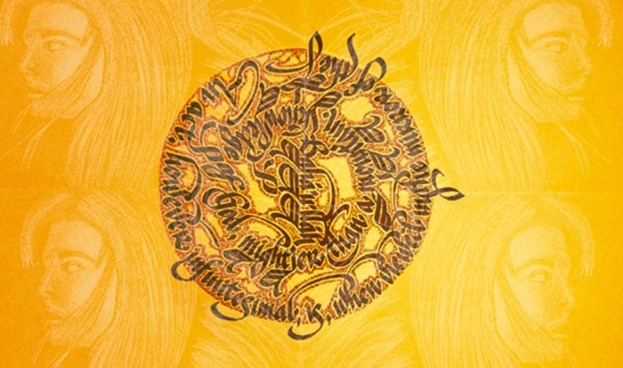By Ariana Resauladin for KidSpirit's The Soul of Gender issue.
I’m a 12-year-old girl who has grown up in a community of Bahá’ís.
It is really astonishing to be a part of a religion that is not common around New York, or any place, actually. There are only about five million people that are documented Bahá’ís. Bahá’ís believes that God is one, man is one, and all religions are one.
The Bahá’í faith was established in Tehran, Iran, in 1844. It was founded by Bahá’u’lláh, whose name translates to the “Glory of God.” As a girl growing up in a Bahá’í community, I’ve always had the feeling that the Bahá’í Faith is one of the few religions in which women, girls, and all children can share their opinion and be respected. Many women around the world don’t have the option to speak, they have to stay quiet and let men speak their minds. Women and young ladies have been abused because they tried to speak for themselves. In the Bahá’í faith, we can speak for ourselves because we have a central teaching about equality.
The Bahá’í faith’s basic principle of the equality of men and women makes it unique. Unlike some other world faiths, Bahá’í writings explicitly say that women are equal to men. So what makes the religion so important to women and girls? In the Bahá’í teachings, women are equal to men both mentally and spiritually. Equality starts at the level of consultation, which is based on reciprocal listening: you have to listen to what others have to say, so that your opinions will be heard. Consultation is important to Bahá’ís because it is the key to resolving debates and issues.
‘Abdu’l-Bahá said:
“Among the miracles which distinguish this sacred dispensation is this, that women have evinced a greater boldness than men when enlisted in the ranks of the Faith.”
That’s because Bahá’í women feel their community is listening to them and giving them equal opportunities. As a result they are very engaged in the faith. One role of women in the faith is to spread excitement about equality in their religion — and their first-hand experiences with it — to all of their female friends and acquaintances.
Most Bahá’í writings say that if you have a boy and a girl, and not enough money to send both to school, the girl should be educated first, because the “woman is the primary educator of the children.” The educated woman teaches and trains the children, and the children grow and develop through the woman’s wisdom. A woman named Ahirah is one of my grandmother’s friends and she shared her way of looking at that principle. She said that an educated woman will make better choices about her life and family, about whether she wants a professional career and at the same time wants children, and is more likely to feel fulfilled in her role as a mother, which leads to happier, more loved children. It is very common for Bahá’í women to work, but work isn’t mandatory.
According to Bahá’í teaching, women will also play one of the greatest roles in the establishment of universal peace. Mothers go through a lot of pain during childbirth, and then shower their children with love. They make sure they have everything they need, they constantly worry about their children’s safety, and they educate them until they have reached maturity. The role of women is so strong, it has the power to stop war, since mothers love their children and would never let violence be their ruler. If mothers were given a choice, would they send their children onto the battlefield? I don’t think so. Once a woman has formed a strong bond with her child, she will never want to let him or her be harmed or get killed in a war.
In regards to this, ‘Abdu’l-Bahá said:
“Therefore, the mothers will not sanction war nor be satisfied with it. So it will come to pass that when women participate fully and equally in the affairs of the world, when they enter confidently and capably the great arena of laws and politics, war will cease; for woman will be the obstacle and hindrance to it. This is true and without doubt.”
All this makes me feel very lucky to be a girl, and to become a woman in the Bahá’í faith. Of course, while the roles of men and women are alike in the Baha’i faith, they have differences too. However, men and women are equal — everyone receives the same respect.
This inspires me to make sure I do well in school, so that I can be well educated and have a career, so that I can help support my family, make sure my children receive all the education they need, and have some money left over to give to the Bahá’í Fund. I think many things are going to change for women; it would be amazing for one of those changes to become a chain reaction around the whole world. Those women and girls in other parts of the world who can’t stand up and say ‘no’ are nevertheless extremely strong; they have the power to change the world. I hope I’ll be able to do my part.
When she wrote this article, Ariana Resauladin was 12 years old, in the seventh grade, and lived in South Ozone Park, Queens, New York, with her family. She likes to play games and watch horror movies, and her favorite singing group is One Direction.

 The Role of Women in the Bahá’í Faith
The Role of Women in the Bahá’í Faith